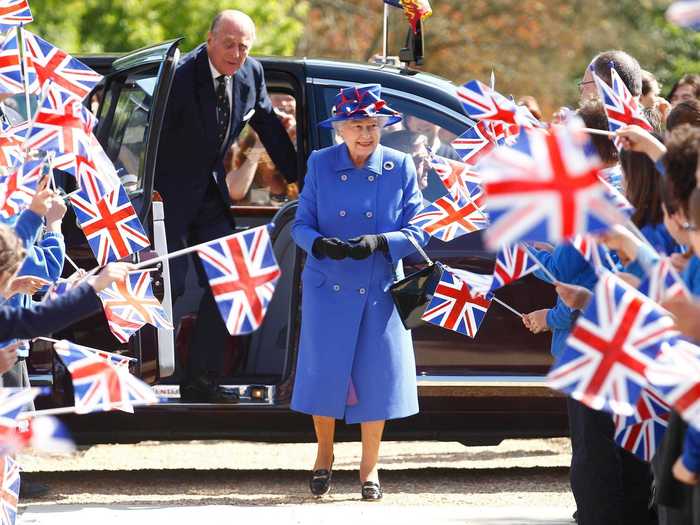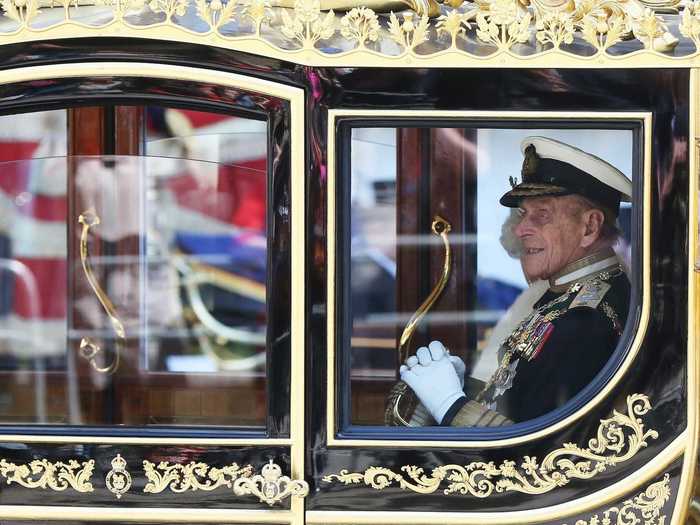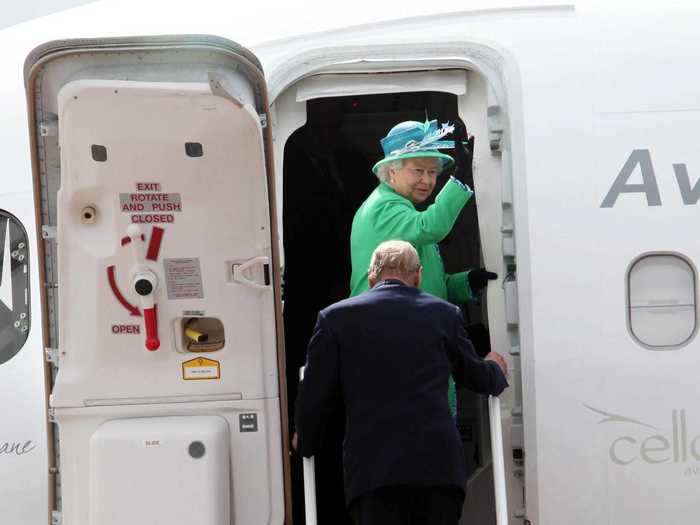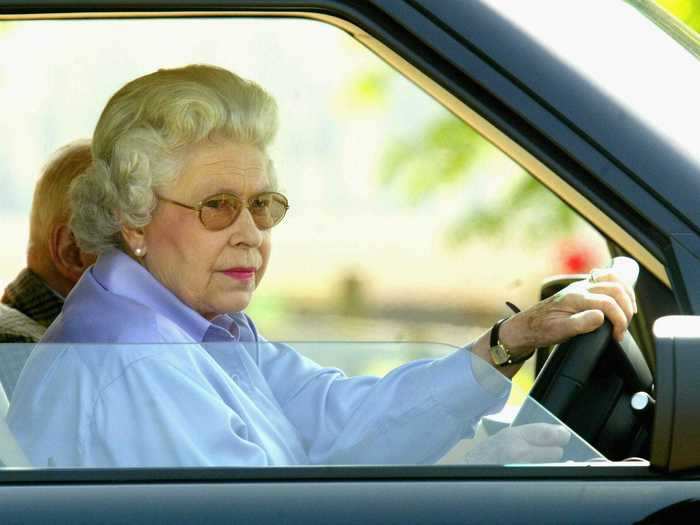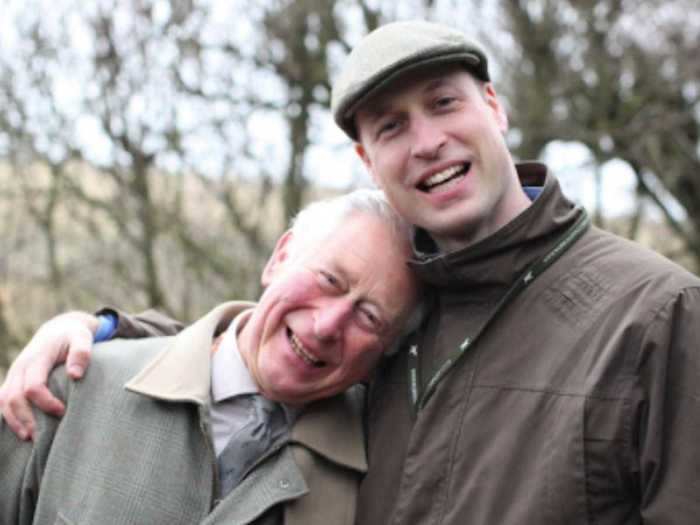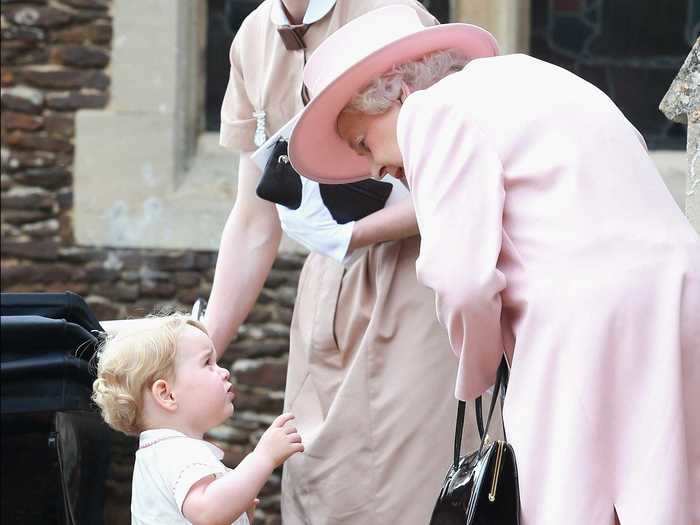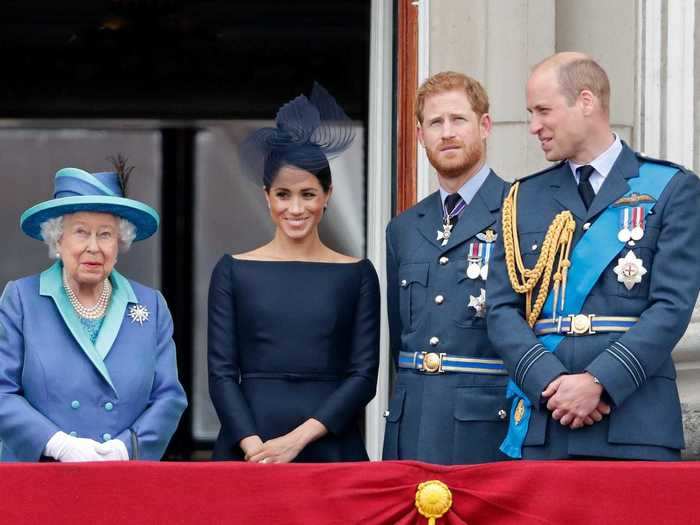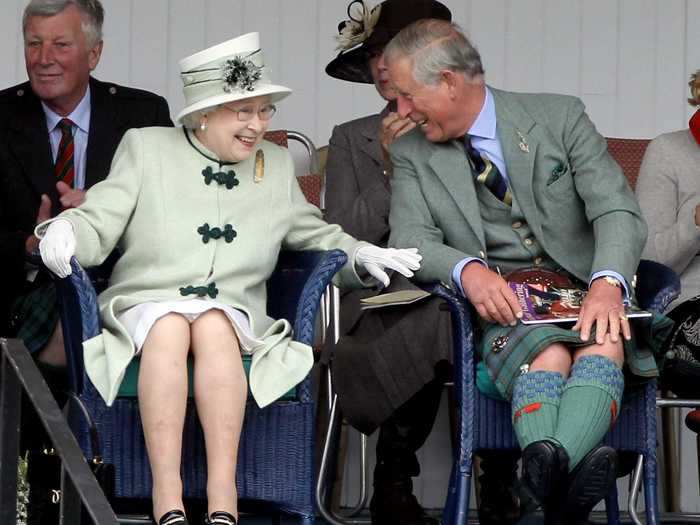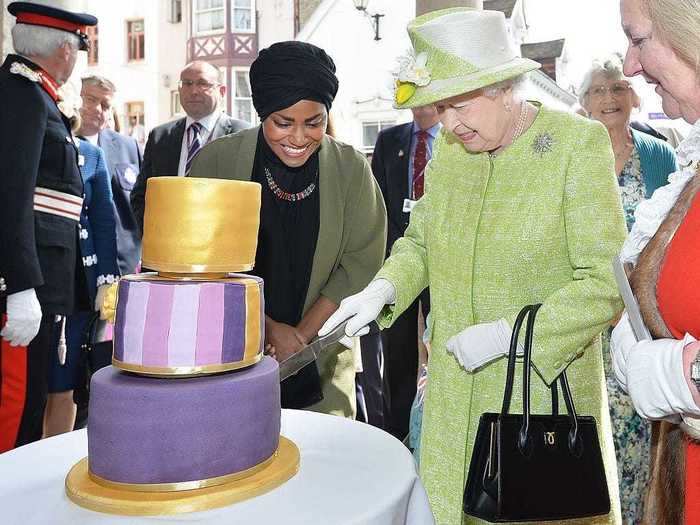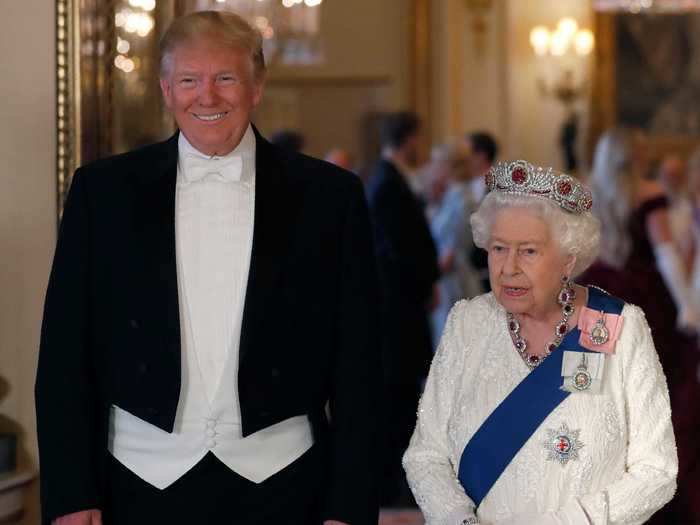Queen Elizabeth doesn't need a driver's license to operate a vehicle.Tim Graham Photo Library/Getty Images
- The royal family is required to follow an extensive list of rules and pieces of royal protocol.
- However, the Queen and her family members also enjoy a number of royal perks that allow them to break certain rules and laws.
- Not only is the royal family exempt from things like taxes and jury duty, but the Queen is also allowed to break any law without fear of legal repercussions.
Though there's an extensive list of rules and regulations members of the British monarchy are required to follow, the royals are also permitted to break a number of rules and laws that would land everyday citizens in the big house.
Here are 10 rules and laws that the British royal family is allowed to break.
The Queen can't be arrested or be the subject of civil and criminal proceedings, meaning she is effectively exempt from the law.
Queen Elizabeth II.
Andrew Winning - WPA Pool/Getty Images
The Queen enjoys sovereign immunity, meaning she can't be prosecuted under a civil or criminal investigation. In essence, the Queen could go on a crime spree, and there wouldn't be much anyone could do about it.
However, according to the royal family's official website, "although civil and criminal proceedings cannot be taken against the Sovereign as a person under UK law, The Queen is careful to ensure that all her activities in her personal capacity are carried out in strict accordance with the law."
The royal family does not have to obey legal speed limits — but only when they're driven by police on official royal duties.
Prince Philip and Queen Elizabeth II being driven in a carriage.
Getty
When the Queen, prime minister, and other members of the royal family are driven by police officers on official royal business, they can drive as fast or as slow as they please.
According to The Sun, the Road Traffic Regulation Act gives permission for police, fire, ambulance, and other enforcement agency vehicles to break speed limits. Since the royals are always driven by police escorts while completing royal duties, their vehicles are thus exempt from following speed regulations.
The Queen doesn't have to use a passport to travel.
Queen Elizabeth boarding an airplane.
Pool/Getty Images
Every passport in the United Kingdom is issued with the Queen's name. As a consequence, the Queen doesn't need her own passport to travel.
However, all other members of the royal family, including The Duke of Edinburgh and The Prince of Wales, hold their own passports.
Her Royal Highness is also not required to have a driver's license.
Queen Elizabeth II driving a vehicle.
Carl De Souza/Stringer/Getty Images
Even if the Queen were to be pulled over for speeding, she wouldn't have a driver's license to show.
At the age of 18, Queen Elizabeth II trained as a driver and mechanic for the Women's Auxiliary Territorial Service during World War II.
Since then, the Queen has never been required to take an actual driving test and is also able to drive without a number plate.
The royals don't have to use their legal last names.
The royals are not required to use their legal last names, even though they technically do have one.
Before 1917, members of the British Royal Family had no surname, but now, the male-line descendants of Queen Elizabeth and Prince Philip bear the last name Mountbatten-Windsor.
While regular grandparents have to go through the courts if they want custody of their grandchildren, the Queen has automatic legal custody of all of her descendants and her minor grandchildren.
Queen Elizabeth II and Prince George.
Chris Jackson/Getty Images
Fans of the royal family might be shocked to realize that the Queen has legal custody of her grandchildren, including Prince William and Kate Middleton's three children, Prince George, Prince Charlotte, and Prince Louis.
This 300-year-old rule may seem odd, and though it's unlikely the Queen would ever take her grandchildren away from their actual parents, the law is still technically on the books.
Members of the royal family are exempt from paying taxes in certain instances.
Queen Elizabeth II, Meghan Markle, Prince Harry, and Prince William at an official royal engagement.
Getty Images
Though the Queen is not legally required to pay taxes, she makes voluntary payments on income, assets, and gains not used for official purposes, according to a previous article by Business Insider.
Other parts of the royal family's income, like the Prince of Wales' income from the Duchy of Cornwall, are also exempt from taxes.
The royals are also able to skip out on jury duty.
Queen Elizabeth II and Prince Charles.
Chris Jackson/Getty Images
Though it's not illegal to celebrate your birthday more than once a year, it's definitely not typical — unless you're Queen Elizabeth.
Queen Elizabeth II cutting a birthday cake.
John Stillwell - WPA Pool/Getty Images
The monarchy is also exempt from the Freedom of Information Act.
Queen Elizabeth II and US President Donald Trump.
ALASTAIR GRANT/AFP/Getty Images
"The Royal Household is not a public authority within the meaning of the FOI Acts, and is therefore exempt from their provisions," according to the royal family's website.
This rule allows the royal family to exercise more privacy over their day-to-day duties and financials.
For instance, according to Republic, the public of the United Kingdom is prevented from accessing detailed information on how the royal household spends public funds and to what extent the royal family has attempted to influence government policies.

